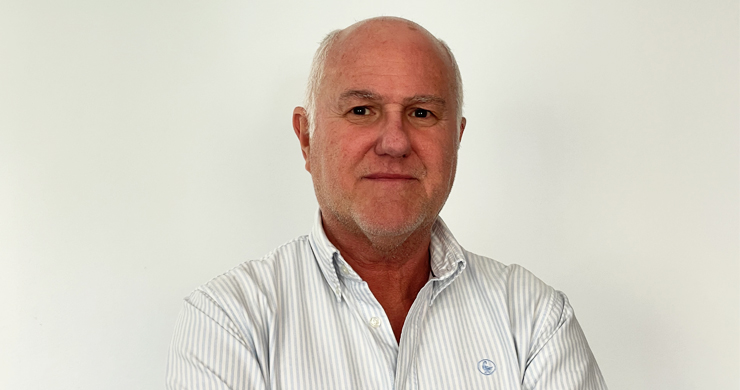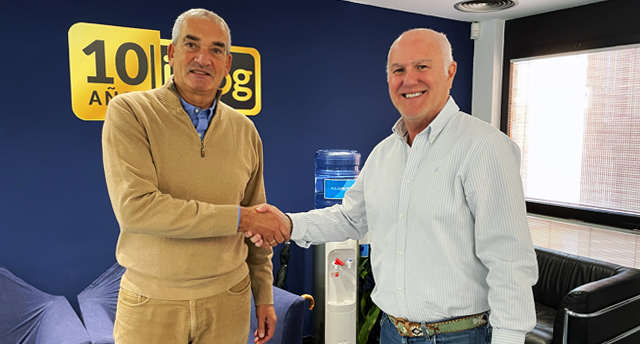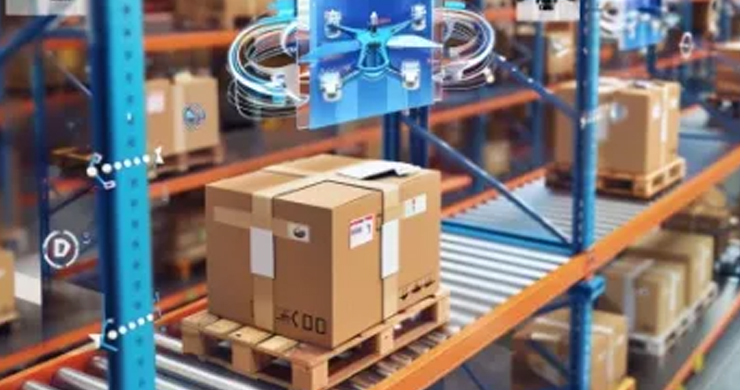Today we spoke with Juan Basterra, co-founder of Mikrobiomik, a medical research startup. In this conversation he talked to us about the challenges, difficulties and goals achieved over the years in a sector as regulated as the health sector and how they have managed to achieve their goals.
How complicated is it to start up a productive activity in the pharmaceutical sector?
I believe that the pharmaceutical sector, especially in regions such as the Basque Country, is dominated by very large companies compared to the rest. Biotechs are tiny and setting up a company, practically from discovery, to commercialize drugs is an odyssey.
First, because the pharmaceutical sector is very mature in terms of time and costs. I can tell you that, from the discovery of a molecule to its commercialization, practically only one out of every 100,000 that are discovered reaches commercialization. That is an amount of about 2,500 million euros in clinical research and regulatory affairs alone. So, to enter into an equity company developing a drug, even with Basque public capital, costs a lot. And it costs because, logically, the return and investment times are very long and the risk is very high.
But we, at the time, through six founders, decided to contribute a small amount of capital and we started, basically, by hiring a researcher. In that journey, from that initial point until today, when there are 17 women, the girls that make up Mikrobionik, we have gone through everything.
There is a very important part that we decided to assume internally, mainly because there were no specialists in the manufacture of microbiota capsules, which is what we do. So we decided, practically in the second year, with a minimum structure of three people, to set up a GMP facility, Equipment Manufacturing Practices, which means, even if it is 70 square meters, to have the same requirements as one of Pfizer’s 80,000 square meters. The requirements are the same.
Then, we managed to get the Spanish Medicines Agency to come and audit the facility and give us authorization for the manufacture of intestinal microbiota capsules at European level. But for all this, logically, many rounds of financing are required, obviously a lot of ups and downs….
I think it is a company that, although it has been in the market for six years now, we are still in the valley of death, because logically, until you validate your business model and sell a unit, which is the most important thing, you have to obtain financing, you have to carry out clinical trials, we have a lot of regulatory costs, a lot of market access costs… It is not easy.
But well, we finished Phase 3 and at the moment, based on the same product, we have four other clinical trials underway.
How does a startup deal with regulation in such a tightly controlled market?
What we have basically achieved is to transform a complex procedure which, for everyone to understand, was to introduce intestinal microbiota through a tube into the duodenum by means of a colonoscopy. We achieved the same efficacy but with the installation of only four capsules. This innovation has been recognized worldwide.
And the other part, the regulation of microbiota under study is very, very complex. It is obviously the most regulated sector in the world, more than the aeronautical sector, because at the end you introduce something theoretically foreign into a person’s organism.
So, at that level we started in an illegal field, people did not know what intestinal microbiota was. We went to the Spanish Medicines Agency, to the International Transplant Organization and we said: what is this going to be or what can it be? A nutritional supplement or a drug? They had no idea.
That first phase of legality was important until the European regulatory agencies confirmed that the intestinal microbiota was going to be considered a drug, so we already had the access route, which was the drug, with all the complexity it has.
But we, in 2023, managed to get the European Medicines Agency to define our product as a new active substance, i.e. a new molecule, which allowed us certain regulatory shortcuts because it allows you, in this case, to carry out a centralized procedure to obtain approval in all European countries at the same time. In other words, it simplifies things.
Being a Small and Medium Enterprise also has many economic benefits from the point of view of a consultancy. A consultancy for the European Medicines Agency is 100,000 euros, but being a SM we only pay 10%. And then there is the Market Access part, logically, which is to prepare the regulatory dossier, submit it, get it approved… and from there we can move on to Market Authorization, which is what comes next.
But this process, as I have said, we have developed it in 6 years and with practically, I would say, in equity 4,000,000 euros. We have also applied for public financing, that is true.
And from there, the last point we were discussing, which is very interesting, is innovation, because saving lives, it seems that the entire pharmaceutical industry saves lives, and obviously there are drugs that save lives. Now oncology with immunotherapy is reaching tremendous limits of efficacy, which were inexplicable a long time ago. In these cases we still have an active compassionate use program.
What does compassionate use mean? That we, the patients who suffer from the infection that we treat, the infection by a bacterium called Clostridium difficile, the name says it all, generally, they are elderly, fragile, multimedicated patients, with many pathologies, hospitalized, isolated…
In this type of patient, 75% of the antibiotic works, but 25% does not, and it is in these patients, when they have logically exhausted this therapeutic option, when they ask us, in a compassionate use, to supply free of charge, with prior authorization from the agency.
The agency reviews the clinical case and says it is either supplyable or not supplyable with a compassionate use. To date, I seem to recall that we have requested more than 60 compassionate uses in patients who were in a really serious, life-threatening situation with no therapeutic alternative because the antibiotics were not working.
Is the socio-economic fabric of the Basque Country grateful for initiatives such as Mikrobiomik’s? Is there aid, is there support?
In the civil service I believe that there is aid, there are subsidies. In practically all the local aids we have been given financing, we have gone to all the Hazitek, they have even given us, on the part of the Provincial Council, the 3i program, which is a non-refundable financing of half a million, for fixed assets, to build the new facility we are planning. In this sense, practically, where we have pulled, we have picked up.
Also at the national level, the Neotec, the Enisa loan, etcetera. But there is something that for me is missing, which is that the Basque public capital, venture capital, I am talking about SPRI, trusts more in health projects.
But practically so far I think that, except for the two large companies, which are two heavyweights, let’s say, in the health sector in the Basque Country, which are consolidated companies, with profits, etc., the ones that need support are the small biotechs, and at the moment the support is very concentrated in medical devices.
Now the medical device is fashionable, theoretically, and so it is. Reaching markets is much simpler, you have to do clinical planning, which is not phase 1, phase 2, phase 3… 12 years of cost and time.
And I believe that the companies that have taken the risk and persevered in marketing a new active substance, which I say in capital letters, a new drug, with the value it has and with the consequences it has, which is not that you improve the dosage of a disease, that instead of three times a day you give one, it is that you are saving lives.
Moreover, in 60 compassionate uses that we have administered, we have shown that if antibiotics fail, our product is the only therapeutic alternative. Well, in this case, I sincerely believe that there is zero support.
That is to say, I believe that Basque public venture capital had to enter into equity in these companies and in a proportional way, because it is obviously not the same thing to start up a health app as, starting from scratch, to end up marketing a drug with all the cost and time involved, as I have already mentioned.
From launching and producing medicine, to new professional goals and objectives. Where is Juan Basterra going now?
I, once I left Mikrobiomik, where, obviously, I have my life there, because I was one of the founders who, in addition, executed the project. Then, I had and I have an excellent team of 17 women and all that we have built for six years, well, from the point of view of completion, it is complicated.
Microbiota is still an area where efficacy has been demonstrated in this infection and there is a French company that will soon demonstrate efficacy in oncology, as, let’s say, another drug. But it is still an area that has a lot of expectations for curing many diseases, but there is still no solid phase two or three evidence for other diseases, so it is a little bit of a snag that we have at the market level.
But well, from that point on, what I have basically done, I continue to support the company, obviously I continue to talk to the executive director, because I know the company, I created it, but on the other hand, as I said, my concern does not allow me to take early retirement and even more so in the environmental conditions at home, and so basically what I am doing is mentoring a series of medical device health projects, we were saying that the focus of health was concentrated in medical device, in different stages and so on, and now, well, well, I am getting older and older, and it seems incredible, but new projects are emerging.
I have been offered, I am plucking the daisy and I think I am going to take some time because they are projects… Two of them are health projects and another food project linked to health, to nutrition. I have already told them that I am here for two or three years at the most, and the truth is that they are projects in different phases, with different challenges, some more complicated and others closer to the market.
In the meantime, I continue to mentor projects, generally associated with BIC Bizkaia, where I have been for six years and where support needs arise from biotech companies that do not know how to bring a product to market, they know at a scientific level, at a research level, at a development level, but then they are left with how to get to market this product.
What advice would you give to those entrepreneurs, scientists, researchers… who are thinking of embarking on the path you took six years ago?
First, persevere, that is to say, you are going to find competitors along the way that you didn’t even know existed, technological development difficulties… In the area where I am, regulatory difficulties. You have to produce, you have to create a GPT facility, i.e. you cannot outsource, in our case, production.
In our case, in addition, we had or have the great challenge that the raw material comes from donors, so we need donors who donate feces.
In the end, all this means that you are never balanced. That is to say: on the one hand you are well oriented on one side, now come curves on the regulatory side?
I would say, then, perseverance. And then, for me, there is another aspect, which is to never stop thinking about yourself and to build a team around you that is much better than you.
For me, they are just two ingredients in the cocktail, but I have had the good fortune or also the good fortune at the time, that all the people who have joined Mikrobiomik have been adding value to the company and have sub-specialized in areas in which I had a more superficial knowledge and therefore I could manage the company, but obviously with the knowledge of experts, which often seems that you want to be an expert in everything and that is impossible.
So, when I left Mikrobiomik I had the feeling that the company was already rolling, that it was something very important. You have your steering committee, you have your departments… but you notice that things flow, but above all, that they flow between the departments, which is something very complicated, and in a small company, with 18 people, even more so.
In the end, all departments are obviously involved in the success of a pharmaceutical molecule; I come from marketing. In marketing and business development, when they told me: “hey, they are going to give us a license or we are going to launch this product”, the only thing to do was to put it on the shelf in the pharmacy to sell. And I never knew what I’ve known so far, from discovery to before you start selling, which is the part that I think people in marketing and sales, business development and sales don’t give any importance to. And discovering a molecule and bringing it to market before they can sell it is a terrible adventure of 10-12 years, 2.5 billion euros and a lot of personal strength provided by the company, as is our case.
So, perseverance and an exceptional team on the side.






